
Crisis Response Fund
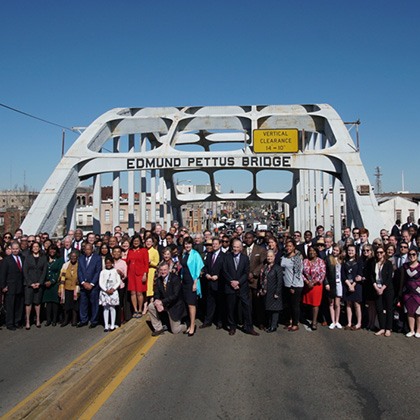
Pilgrimage group photo on the Edmund Pettus Bridge, Selma, Alabama, March 4, 2018, by Chantale Wong.

Pilgrimage group photo on the Edmund Pettus Bridge, Selma, Alabama, March 4, 2018, by Chantale Wong.
“I woke up this morning with my mind stayed on freedom.” We swayed side to side, arms linked and sang these words as they reverberated off the steel casing surrounding Edmund Pettus Bridge.
53 years prior, peaceful protesters set off from Selma, Alabama and began a march across the same Edmund Pettus Bridge to advocate for black voter rights. Over 600 unarmed demonstrators were met by a line of police officers with clubs and tear gas—ready for confrontation. The brutal attack that ensued left marchers bloodied and severely injured. America and the world watched as the beatings were televised, sparking outcry now remembered as “Bloody Sunday.”
That day was March 7th, 1965. This month, in memory of the 50th year of Dr. Martin Luther King Jr’s assassination and historical “Bloody Sunday,” I joined the Faith and Politics Institute on their annual civil rights pilgrimage to Selma, Birmingham and Montgomery led by Representative John Lewis (D-Ga.).

John Lewis, March 7th 1965, Selma, Alabama leading the march on Edmund Pettus Bridge.
To walk in the footsteps of giants from the civil rights movement, with those very giants, is nothing short of an indescribable experience. Over the course of three days I had the honor to learn from the tenacity of survivors in the 16th Street Baptist Church bombing—the fearlessness of Martin Luther King III and the enduring courage of foot soldiers who made great sacrifices in the quest for equal rights and freedom.
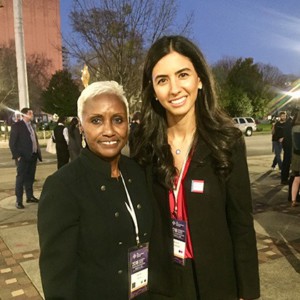
Roxana with Marion Daniel, survivor of the 16th Street Baptist Church bombing
Noteworthy moments include:
We marched through history together and discussed civil rights approaches that felt keenly relevant to our present-day movements: #MeToo calling attention to sexual assault and workplace harassment, #Dreamers advocating for 800k DACA student protections and #NeverAgain charging forward on gun control.
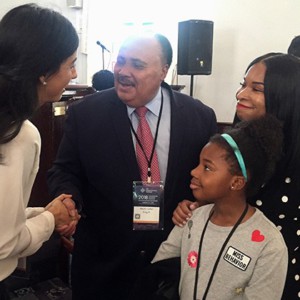
Roxana with Martin Luther King III, Andrea Waters, and Yolanda Renee King
A couple of themes emerged:
Traveling through time in Alabama reminded me of Dr. Martin Luther King Jr.’s call for patience and steady progress. He said, “The arc of the moral universe is long, but it bends toward justice.” 53 years after Bloody Sunday, sometimes racial equity still seems far from reach and that the arc is long indeed. Yet today as we see courageous leaders of all race, religion, and status crossing boundaries to build a world of social justice together, his call rings true more than ever.
To close the pilgrimage, Attorney Sherrilyn Ifill, President of the NAACP Legal Defense Fund asked, “In 50 years when they talk about this moment in history, what will be your story?” I don’t know exactly what my answer would be, but I do know it’s a story I am writing every day. Movement building takes time and in that time you will not be praised—it will not be sexy—you will have to study and you will have to sacrifice. It is my privilege working at Tides to lift up committed and history-defining movement builders, to support them—and to steward the resources of our donors who are committed to justice. Our network of changemakers, funders, and grantees dare change every day, continuing work of civil rights movement leaders whose incredible efforts are far from over.

Crisis Response Fund
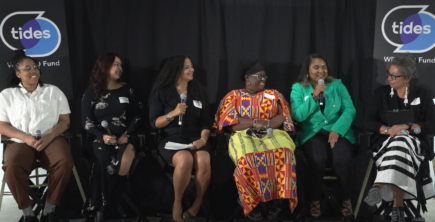
WE LEAD
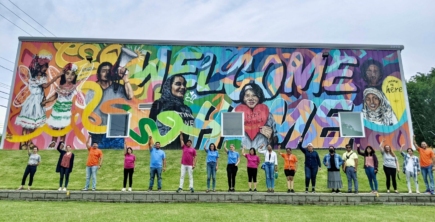
Equality & Human Rights

Read the stories and hear the voices of social change leaders fighting for justice.